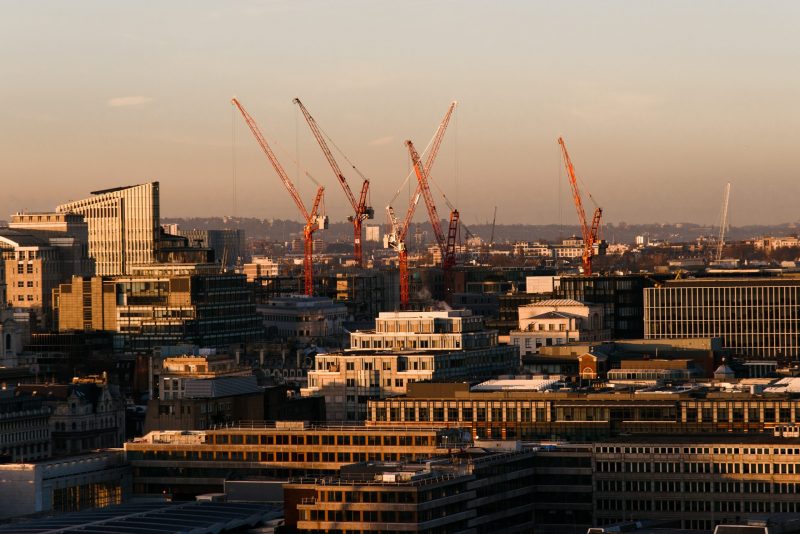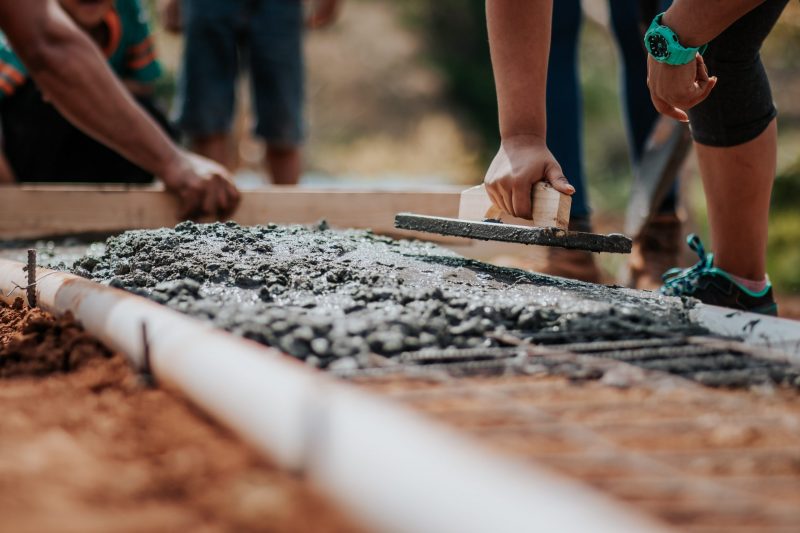According to the Australian Industry and Skills Committee, the construction sector in Australia is valued at $360 billion in revenue. The industry is responsible for 9% of the country's gross domestic product, with a projected annual growth rate of 2.4% in the next half-decade. However, the construction industry is facing many challenges and uncertainties following the collapse of some of the country's largest construction firms, such as ProBuild.
What does this mean for the construction industry in Australia as a whole? And what can smaller construction companies do to mitigate the risk so they don't collapse?
The Current State of the Australian Construction Companies
A slew of Australian construction and building companies have announced their collapse in the past few months. ProBuild and Metricon are just a few companies that have gone public with their financial crisis. Most of these companies filed for insolvency; others are chased for their tax obligations as the economic re-opening prompted the Government to lift its tax moratoriums.
With more construction companies collapsing at their foundation, the industry has clear gaps. These challenges are evident in pre-pandemic conditions since the industry is rife with risks. This is why obtaining insurance for smaller businesses is integral for those involved in the construction industry, as liabilities are inherent and risks are everywhere. The importance of future-proofing businesses and having a solid fiscal plan is reiterated by the financial crisis faced by the threat of collapse in the building industry.
Risks and Challenges in the Construction Business
Experts like to point to the inherent risks and challenges of the construction industry in the ongoing collapse of many top construction firms in Australia. It's no secret that the inflation crisis is partly to blame here; with the inflation rates going up, commodity prices, including building materials, are also increasing exponentially.
This can present a problem for construction businesses and firms involved in fixed-price contracts. These firms have quoted their clients prices based on costs from a previous year. Given the rapid rate of increase for building materials in the last year, the construction companies are forced to bear the brunt of the impact of price increases.
The construction industry is hardest hit by the ending of the government stimulus and the inflation. The impact is felt at all construction industry levels, whether running a large firm with hundreds of employees or small construction business. According to the Financial Review, the cost of building a new home in Australia has increased by as much as $76,000 in April compared to last year’s data.
Aside from the soaring prices of building materials and supplies, the shortages in labour and supply chain also add to the problem. Furthermore, construction firms cannot pass the increased costs of the building materials to the consumers since most firms deal with fixed-price contracts. The Association of Professional Builders also pointed out that about 50% of Australian construction firms are trading insolvents, which is one of the sure signs of financial trouble.
To add to the current risks construction businesses face, many of these builders have also suffered delays due to the pandemic. In the building industry, delays could mean more losses.

Future-Proof Your Construction Business in Australia
Speaking to insurance brokers is one of the best ways to mitigate the risks of uncertain economic conditions. Insurance products built for this industry can hedge against losses.
Another way to mitigate the risk of exponential rises in material costs is to include a cost escalation clause in your contract. This will enable you to renegotiate the cost of a contract based on the prevailing market conditions rather than force builders to agree to squeeze more out of their already-slim profit margins.
Adding a new clause undoubtedly puts more pressure on the consumers as they are expected to cope with the rising prices of construction projects. For this reason, industry experts recommend that consumers add a contingency amount on top of their projected budget to cover any "extra" costs that might come up.
The building and construction industry is vital to the overall economy of Australia. Therefore the current financial crisis experienced by the industry has caused significant shock waves throughout the country, especially when the economy is volatile due to the impact of the pandemic.
According to the Australian Industry and Skills Committee, the construction sector in Australia is valued at $360 billion in revenue. The industry is responsible for 9% of the country's gross domestic product, with a projected annual growth rate of 2.4% in the next half-decade. However, the construction industry is facing many challenges and uncertainties following the collapse of some of the country's largest construction firms, such as ProBuild.
What does this mean for the construction industry in Australia as a whole? And what can smaller construction companies do to mitigate the risk so they don't collapse?
The Current State of the Australian Construction Companies
A slew of Australian construction and building companies have announced their collapse in the past few months. ProBuild and Metricon are just a few companies that have gone public with their financial crisis. Most of these companies filed for insolvency; others are chased for their tax obligations as the economic re-opening prompted the Government to lift its tax moratoriums.
With more construction companies collapsing at their foundation, the industry has clear gaps. These challenges are evident in pre-pandemic conditions since the industry is rife with risks. This is why obtaining insurance for smaller businesses is integral for those involved in the construction industry, as liabilities are inherent and risks are everywhere. The importance of future-proofing businesses and having a solid fiscal plan is reiterated by the financial crisis faced by the threat of collapse in the building industry.
Risks and Challenges in the Construction Business
Experts like to point to the inherent risks and challenges of the construction industry in the ongoing collapse of many top construction firms in Australia. It's no secret that the inflation crisis is partly to blame here; with the inflation rates going up, commodity prices, including building materials, are also increasing exponentially.
This can present a problem for construction businesses and firms involved in fixed-price contracts. These firms have quoted their clients prices based on costs from a previous year. Given the rapid rate of increase for building materials in the last year, the construction companies are forced to bear the brunt of the impact of price increases.
The construction industry is hardest hit by the ending of the government stimulus and the inflation. The impact is felt at all construction industry levels, whether running a large firm with hundreds of employees or small construction business. According to the Financial Review, the cost of building a new home in Australia has increased by as much as $76,000 in April compared to last year’s data.
Aside from the soaring prices of building materials and supplies, the shortages in labour and supply chain also add to the problem. Furthermore, construction firms cannot pass the increased costs of the building materials to the consumers since most firms deal with fixed-price contracts. The Association of Professional Builders also pointed out that about 50% of Australian construction firms are trading insolvents, which is one of the sure signs of financial trouble.
To add to the current risks construction businesses face, many of these builders have also suffered delays due to the pandemic. In the building industry, delays could mean more losses.

Future-Proof Your Construction Business in Australia
Speaking to insurance brokers is one of the best ways to mitigate the risks of uncertain economic conditions. Insurance products built for this industry can hedge against losses.
Another way to mitigate the risk of exponential rises in material costs is to include a cost escalation clause in your contract. This will enable you to renegotiate the cost of a contract based on the prevailing market conditions rather than force builders to agree to squeeze more out of their already-slim profit margins.
Adding a new clause undoubtedly puts more pressure on the consumers as they are expected to cope with the rising prices of construction projects. For this reason, industry experts recommend that consumers add a contingency amount on top of their projected budget to cover any "extra" costs that might come up.
The building and construction industry is vital to the overall economy of Australia. Therefore the current financial crisis experienced by the industry has caused significant shock waves throughout the country, especially when the economy is volatile due to the impact of the pandemic.



